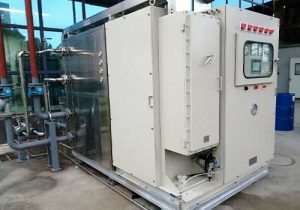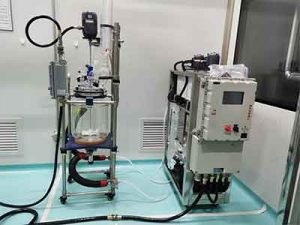large tonnage chillers
Introduction to Large Tonnage Chillers
Large tonnage chillers are essential in applications requiring substantial cooling capacities, such as industrial processes, large commercial buildings, and district cooling systems. These chillers are designed to provide reliable and efficient cooling performance, with capacities ranging from hundreds to thousands of tons.

Key Components and Operation
The primary components of a large tonnage chiller include the compressor, condenser, evaporator, and expansion valve. The compressor is responsible for increasing the pressure of the refrigerant, which is then cooled and condensed in the condenser. The refrigerant flows through the expansion valve, where it evaporates and absorbs heat in the evaporator, thereby cooling the water that is circulated through the system.
Efficiency Factors
Efficiency in large tonnage chillers is influenced by several factors, including the type of compressor used, the refrigerant’s thermodynamic properties, and the chiller’s design. Modern chillers are increasingly low-GWP refrigerants to reduce their environmental impact while maintaining high efficiency. Chillers with variable-speed drives (VSD) can adjust the compressor’s speed to match the load, thereby optimizing energy consumption.

Maintenance Practices
Proper maintenance is vital for the optimal performance and longevity of large tonnage chillers. Regular maintenance tasks include inspecting and cleaning the heat exchanger tubes to prevent scale buildup and fouling, checking for refrigerant leaks, and verifying the motor amperage load limit. A preventive and predictive maintenance program can help identify and address issues before they lead to system failure.
Latest Advancements
The chiller industry is continuously evolving, with a focus on enhancing efficiency and sustainability. Advancements include the development of high-efficiency heat exchangers, the use of magnetic-bearing compressors, and the integration of smart controls and IoT technologies for remote monitoring and optimization. These innovations contribute to reduced energy consumption, smaller footprints, and improved system reliability.

Conclusion
Large tonnage chillers play a significant role in providing cooling solutions for a wide range of applications. By understanding their components, efficiency factors, and the importance of maintenance, operators can ensure these chillers operate at peak performance. The ongoing advancements in chiller technology promise more efficient, reliable, and environmentally friendly cooling solutions for the future.
Related recommendations
25 ton chiller
39425-Ton Chiller: A Comprehensive GuideIntroductionA 25-ton chiller is a medium-capacity cooling system designed to remove 300,000 BTU/h of heat, equivalent to the cooling power required to melt 25 ...
View detailsSelection Factors for Industrial Refrigeration and Heating Equipment
1159Selection Factors for Industrial Refrigeration and Heating Equipment Refrigeration heating equipment is widely used in many fields. It can provide the functions of advance, repeatability and...
View detailsheater lab
339Heater Lab: Complete Guide to Laboratory Heating Systems Fundamentals of Laboratory HeatingLaboratory heating systems serve critical functions in scientific research by providing controlled th...
View detailsHow to Take Antifreeze Protection Measures for Industrial Chillers in Winter?
1664How to Take Antifreeze Protection Measures for Industrial Chillers in Winter? The temperature is low in winter. We know that many machinery and instruments need antifreeze protection measures...
View details
 LNEYA Chiller
LNEYA Chiller






HelloPlease log in